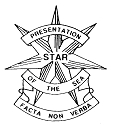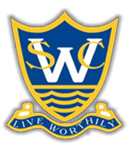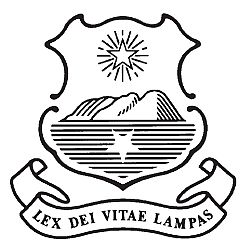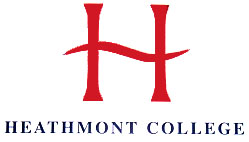Education in Australia encompasses the sectors of early childhood education (preschool) and primary education, followed by secondary education, and finally tertiary education, which includes higher education and vocational education. Regulation and funding of education is primarily the responsibility of the States and territories; however, the Australian Government also plays a funding role.
Alternative education encompasses many pedagogical approaches differing from mainstream pedagogy. Such alternative learning environments may be found within state, charter, and independent schools as well as home-based learning environments. Many educational alternatives emphasize small class sizes, close relationships between students and teachers and a sense of community.

Haileybury is a private school with campuses in Keysborough, Brighton East, Berwick, Darwin, Northern Territory and Melbourne's CBD. It also has an international campus in the Tianjin outer district of Wuqing, China. Haileybury operates under the model of parallel education, which consists of Haileybury College and Haileybury Girls College. Haileybury has been described as the largest independent school in Australia.

Star of the Sea College is an independent, Catholic, day school for girls, located in Brighton, an inner south-eastern suburb of Melbourne, Victoria, Australia.

Werribee Secondary College is a government high school in Werribee, a suburb of Melbourne, Victoria, Australia. The College is operated by the Victorian Department of Education.

McKinnon Secondary College is a public secondary school located in the Melbourne suburb of McKinnon. The school was ranked 62nd in Victoria in terms of VCE median study score in 2012. In February 2022, the school opened a second campus located in Bentleigh East to be designated to Year 8 and Year 9 students. This new campus was officially dubbed the East Campus. Pitsa Binnion, the principal, retired at the end of 2022, with Mr Michael Kan becoming the new college principal.

Kardinia International College is a private K-12 school located in Bell Post Hill, Geelong, Victoria, Australia. It is a triple campus college, residing on the site of the former Morongo Girls' College and has two other campuses, one in Lovely Banks, Geelong and another located in Chiang Mai, Thailand. Enrolment across the school is usually around 1800 full time students.

Presbyterian Ladies' College, Melbourne (PLC), is an independent, private, Presbyterian, day and boarding school for girls, located in Burwood, an eastern suburb of Melbourne, Victoria, Australia.

Viewbank College is an Australian public secondary school located in the north eastern suburb of Viewbank, in Melbourne, Australia.

Roseville College is an independent Anglican day school for girls, located in the suburb of Roseville, on the North Shore of Sydney, New South Wales, Australia.

The Victorian Curriculum and Assessment Authority (VCAA) is a statutory authority of the Victoria State Government responsible for the provision of curriculum and assessment programs for students in Victoria, Australia. The VCAA is primarily accountable to the Victorian Minister for Education. It is also responsible to the Minister for Training and Skills and the Minister for Families and Children in relation to sections of Part 2.5 of the Education and Training Reform Act 2006.

Frankston High School or simply Frankston High, is a government-funded co-educational high school, located in Frankston, Melbourne, Victoria, Australia. The school offers education for students from Year 7 to Year 12.
Korowa Anglican Girls' School is a private, Anglican, day school for girls, located in Glen Iris, a suburb of Melbourne, Victoria, Australia.
The Achievement Improvement Monitor (AIM) program was a testing scheme used to monitor the development of literacy and numeracy skills of school students in Victoria, Australia.
Loreto Mandeville Hall Toorak is an independent Roman Catholic single-sex primary and secondary day school for girls, located in Toorak, a suburb of Melbourne, Victoria, Australia. It is one of many Loreto schools around the world, established by the Loreto Sisters founded some 400 years ago by Mary Ward.

Heathmont College is a coeducational government secondary college located in Heathmont, Victoria. It is located between Waters Grove, Marlborough Road and Hardy Crescent.

Education in Victoria, Australia is supervised by the Department of Education and Training (DET), which is part of the State Government and whose role is to "provide policy and planning advice for the delivery of education". It acts as advisor to two state ministers, that for Education and for Children and Early Childhood Development.

The National Assessment Program – Literacy and Numeracy (NAPLAN) is a series of tests focused on basic skills that are administered to Australian students in year 3, 5, 7 and 9. These standardised tests assess students' reading, writing, language and numeracy and are administered by the Australian Curriculum, Assessment and Reporting Authority (ACARA). The National Assessment Program is overseen by the Education Ministers Meeting.
Beechworth Secondary College is a state secondary college located in the historic town of Beechworth, Victoria, which is located in the north east of the state near the border of Victoria and New South Wales.
St. Francis Xavier College is a 7–12 Catholic co-educational school in Victoria, Australia. In 2022, it has over 3,000 students and 300 teaching staff, with over 1,500 students and teachers in the Beaconsfield campus alone. It has campuses in Berwick, Beaconsfield and Officer.














